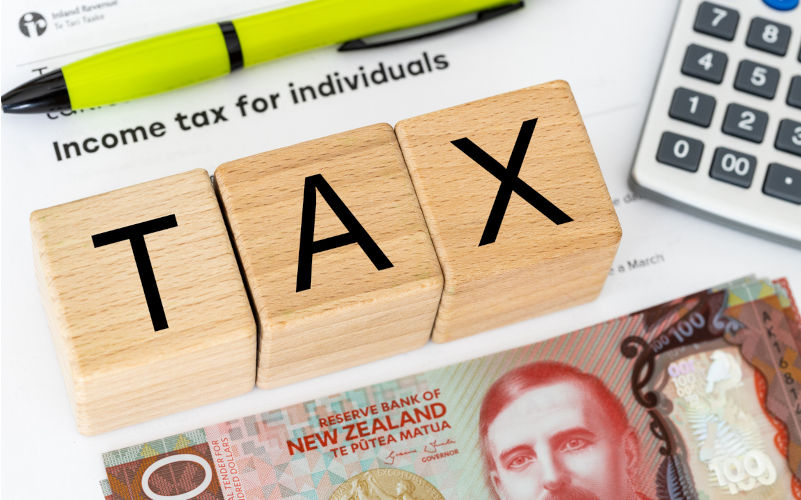New Zealand’s centre-right coalition gives with one hand, takes with the other
June 7, 2024
The latest Budget in New Zealand appeared to have been driven by the old idea that small government is the best government. Thousands of public service jobs have been slashed while the government reduced its own revenue by cutting taxes.
The tax cuts were an election pledge. The National Party’s view was that as incomes rose the tax brackets also needed to rise.
The perception sold heavily during the election campaign and since was that the tax changes would make earners wealthier. Party leader Christopher Luxon as candidate and also as Prime Minister said many times that working families will be better off by $250 per fortnight.
The reality is that the benefits are not as significant as advertised, and some beneficiaries will be worse off.
The Finance Minister Nicola Willis said in an interview with the talented inquisitor Jack Tame about 3,000 families will be better off by $250 a fortnight, and about 9000 families will be worse off.
For most taxpayers and beneficiaries the amounts involved are small.
Households with children will benefit by an average of $NZ78 a fortnight, and about 1.9 million households will benefit by an average of $NZ60 a fortnight.
A new FamilyBoost payment will help about 100,000 families with the cost of early childhood education by up to $150 a fortnight. However a group representing early childhood education and kindergarten teachers said the budget provisions didn’t cover inflation nor compensate for cuts already made.
Most of the benefits from the tax cuts are off-set by inflation and additional costs imposed by the government itself.
These include the reintroduction of a charge for prescriptions with some exemptions including for those over 65 and under 14, the reintroduction of first year tertiary education tuition fees (made free by the Labour Government), by increasing interest on late payment of student loans, removing public transport subsidies for children and young people, increasing vehicle registration fees and the previously exempt owners of electric vehicles will have to start paying Road User Charges.
Critics say all these costs will make life for many New Zealanders more expensive despite the tax cuts.
The cost of the tax changes to the country will also reduce the Government’s revenue and delay a return to surplus.
Controversial measures to provide tax relief for landlords cost $NZ2.9 billion over four years and the tax changes in the budget will cost $14 billion over four years.
The budget predicts a surplus in the year 2027/28, one year later than earlier predicted. In Nicola Willis’s own words, “a weaker outlook for tax revenue has flowed through into lower OBEGAL (Operating Balance before Gains and Losses) balances and a higher debt track.”
To help reduce the impact of its tax giveaway the government has embarked on a cost cutting exercise including the reduction of public services, increasing a series of fees and by shedding public employees. The Stuff news service reports that as of May 23, 5,053 public service roles had been or were proposed to be cut.
Some of the motives for the budget measures appear to be rooted in neo liberal economics promoted by the right wing ACT Party, a coalition partner.
Finance Minister Nicola Willis thanked the ACT party leader David Seymour for his help in writing critical parts of the budget. She said “I engaged closely and constructively with my colleague David Seymour on the ACT Party’s idea of flattening the tax scale.”
The perception is that ACT with only eleven seats of 122 in the Parliament has disproportionate influence over the government. ACT policies that have been adopted include the ditching of world leading anti-smoking policies, ending a ban on off-shore petroleum exploration, a reduction in free lunches in schools, the return of the previously banned pseudoephedrine for colds and flu medicines and the reintroduction of academy schools.
ACT policies also helped to inspire large protests in several cities to coincide with the reading of the budget. Maori protested against a series of coalition policies seen as attacks on indigenous rights, including an ACT Party bill that seeks to redefine the principles of New Zealand’s founding document the Treaty of Waitangi.
To justify shrinking public services Nicola Willis has asserted that the New Zealand economy was in a poor state and that the Labour Government was to blame. She said the economy was a mess, with budget holes and fiscal cliffs.
Yet many measures show the New Zealand economy under the Labour Government survived the Pandemic in good shape. Its credit rating remains at AA+, the same as the US and better than the UK, France, Spain and Portugal.
The OECD’s snapshot in May this year said that after the “strong recovery from the pandemic, the New Zealand economy has slowed, with higher interest rates weighing on housing construction, and inflation undermining purchasing power and consumption. Monetary policy has tightened significantly since late 2021 and proved efficient at reining in inflation.”
In its first budget the coalition government appears to have given priority to tax changes that benefit earners and landlords while making cuts elsewhere and failing to keep a promise to fund some cancer drugs. During the election campaign the National Party promised to spend $280 million on a group of 13 cancer medicines. This was not provided for in the budget and cancer patients hoping for the new medication have to wait longer.
While Nicola Willis said the government is working to find how to fund the drugs and there will be an announcement later this year, the perception has been strengthened among many of a callously cost-cutting government that used the promise of tax relief to win the election.

